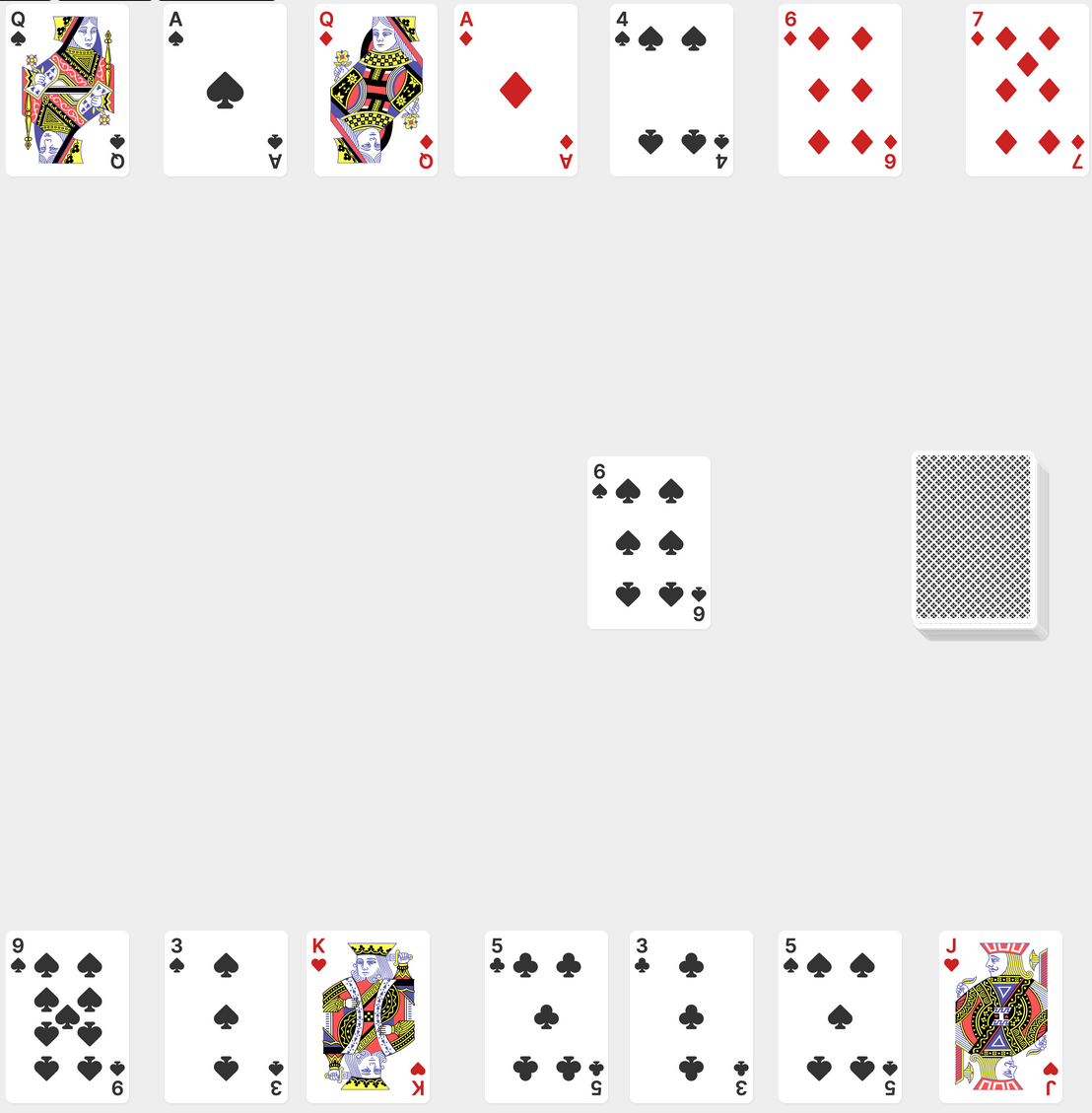Material: 52 cards (4*A~K) + 1 D6
Structure: Aces are rank 1, Kings are rank 13, and ranks wrap around in the upwards direction (e.g Ace is 1 above King)
Setup:
The two players alternate turns by choosing a card from their hand to discard to the top of discard pile. A discarded card must be greater than the discard pile's topmost card by at least 1 rank and at most 6 ranks. If no such card exists in their hand, then the player must draw a card from the stock pile and skip their turn. Once a card is discarded, the other player may choose to contest the discarded card by rolling a D6. If the difference between ranks of the played card and the card beneath is less than the value of the D6, then the played card is returned to the discarder's hand and their turn is skipped. If the difference is equal to or greater, then the contester must draw 2 cards. A player wins once they have 0 cards in their hand.

Playtest results:
Pretty chill experience, I had to modify some rules and there was some cool unintended interactions. For example, the rules that reads "If the difference between ranks of the played card and the card beneath is less than the value of the D6," was before ""If the difference between ranks of the played card and the card beneath is equal to or less than the value of the D6." Before, it made a difference of 1 (Two to Three) unplayable since it was a free contest. If you played a card that was the same rank, it acts as a free turn pass since the other player can contest for free at no loss, which led to some longer term game winning strategies.
Alternative Idea:
A central skill of the game is the ability to look at the other player's hands and judge whether it was worthwhile to contest or not contest. Nevertheless, making the game face down instead of face up may provide an interesting skill challenge of card-counting correctly.
Did you like this post? Tell us